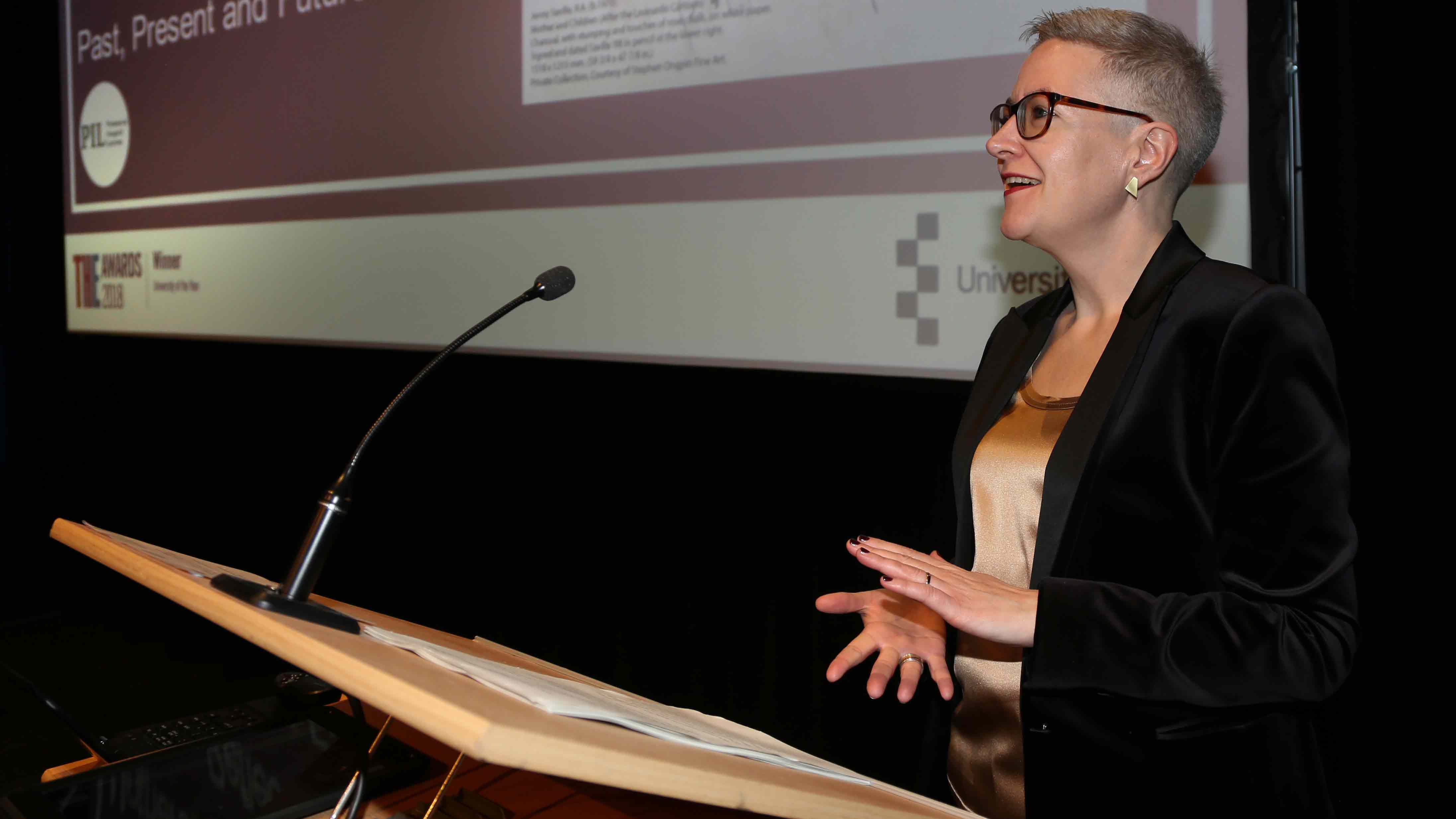As a teenager, Professor Tracey Loughran found comfort in the worlds that literature and history opened up, realising that knowing where you come from is the key to unlocking where you may go. Tracey joined the Department of History in 2017 after nine years at the University of Cardiff and has taught an MA module called Our Voices, Our Pasts, Our Histories: Oral History in Practice as well as our second-year research project preparatory module, HR231. I spoke to Tracey to find out more.

You say that education simultaneously alienated and liberated you. Did you have a specific teacher at school (or later in your educational career) that inspired you, and if so, how?
I’ve had so many inspirational teachers that this is a really difficult question to answer! The real turning point in making history my career was probably a team-taught module I took in the second year of my undergraduate degree, ‘Culture, Society, and Transgression in Nineteenth-Century Britain’. The module looked at sex, crime, and madness in the Victorian era. It was a completely new kind of history for me, and made me think very differently about what history was.
What did you study as an undergraduate and what made you to choose that subject?
I studied history as an undergraduate. I really loved English literature and history, but I thought that whereas I would always carry on reading novels, I would be less likely to keep up with history if I didn’t study it at university. I do still read novels but I definitely spend more time on history now!
You joined the University of Essex in 2017 as a Reader in Modern History, later being promoted to Professor. What attracted you to Essex?
It’s very easy to get things off the ground at Essex. There’s a lot of enthusiasm at the top levels for following up on good ideas, rather than getting bogged down in paperwork. I really liked the sense that if I wanted to make something happen, I’d have support to do it. Since I started here, I’ve helped to set up two entirely new interdisciplinary degree programmes – at some other institutions, we would still be working on the paperwork now, rather than teaching students for those programmes.
You have wide-ranging research interests, from the history of gender to the history of war and trauma. Do you have a favourite area, or do the different areas inform each other? Is your favourite research area the same as your favourite topic to teach, or do you approach them separately?
What I’m really interested in is the relationship between power and identity – who people are, how their identities influence their lives, and how much power they have to shape their own lives in the face of different pressures and controls. I’m also really interested in the extent to which historians can ever really know what people in the past thought or felt – in other words, to what extent we’re able to access past people’s identities through the sources that survive. These threads run through all my research, and they are crucial parts of my teaching on the history of gender in twentieth-century Britain.
How do you balance the pressures of teaching and research?
Ideally, historians should research and teach on complementary areas that they’re interested in. That means that teaching feeds into research, and vice versa. It also means that students are really at the cutting edge of historical knowledge, because they are getting access to new sources and ideas through their lectures and seminars before anyone else – and students provide great feedback on those new ideas before they appear in print. Insofar as it’s possible, I try to set up my teaching and my research so that they’re not in competition, but work well together.
What one piece of advice would you give to a new student about to study history?
Keep an open mind – history is about questions more than answers. If you have an open mind, you’ll ask better questions – and that means the answers will be better too.
You currently hold a Wellcome Trust Investigator Award for the project 'Body, Self and Family: Women's Psychological, Emotional and Bodily Health in Britain, c. 1960-1990' which aims to create an intersectional history of gender, body and the self from bottom-up rather than the top-down. What have been the early findings of the project?
The project has reinforced that there is no one way to be a woman, but there are a lot of consistencies in the way that women have been oppressed over time.
Why is it important that we understand women's psychological, emotional and bodily health in Britain better? Who do you hope will benefit from this project?
As human beings, we explain ourselves via our histories, whether that’s our personal and recent history, or our longer family or community histories. We talk about who we are in terms of where we came from, and what’s happened to us. When our history is murky or neglected, it’s more difficult to understand where we came from, or what we can do next. By illuminating hidden areas of women’s history, girls and women might understand their histories better, and see their possibilities for action in the present differently. To achieve this aim, my colleagues Dr Kate Mahoney and Dr Daisy Payling have created a toolkit that uses historical materials uncovered by the project to help adolescents think differently about their wellbeing in the present. It is an incredible resource that will be launched in early 2022, and I am really proud to have worked alongside them on it.
Can you tell us something your students might not know about you?
My best half-marathon time is 1:50:04. I still think I can beat it.
Find out more about the Body, Self and Family project and how oral histories shape what we understand about women's experiences.
Next in our series, I’ll be speaking to Dr Matthew Grant.



